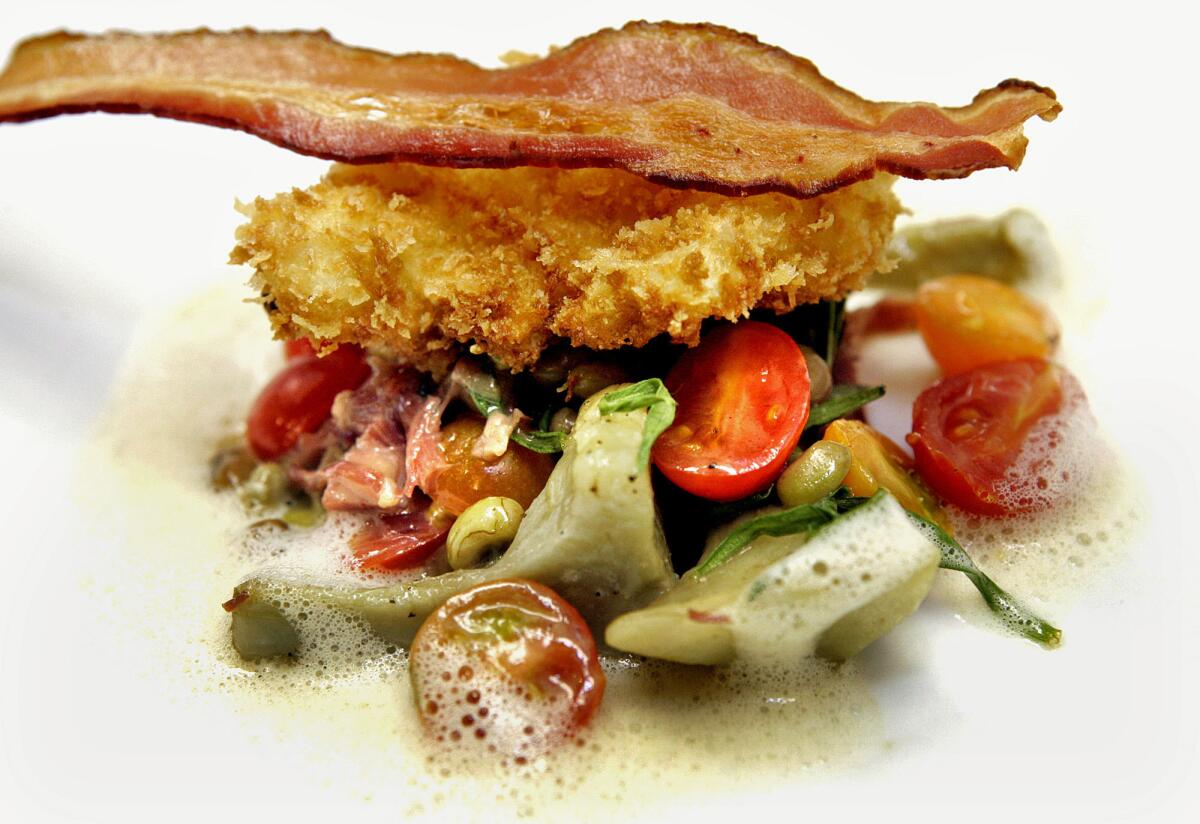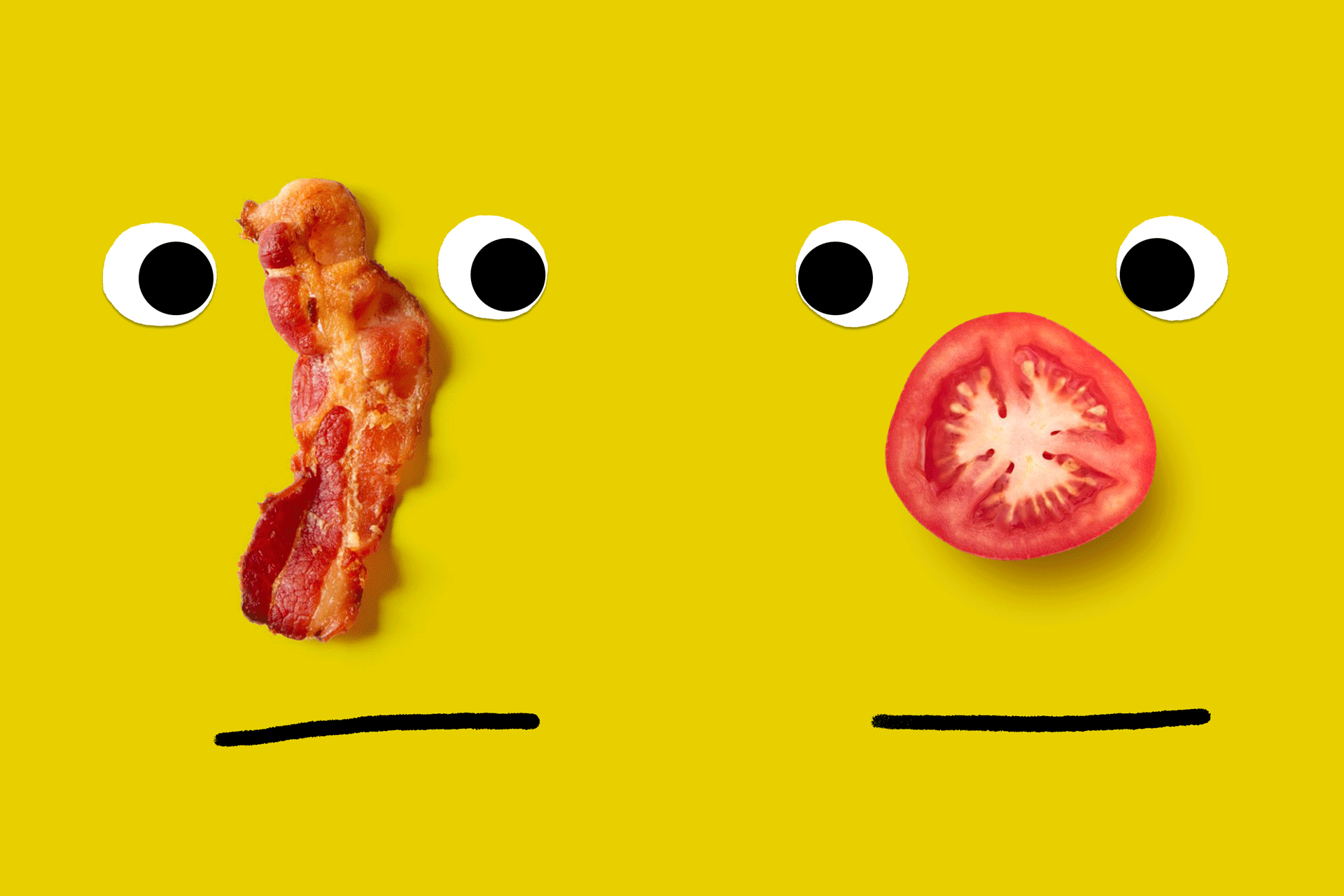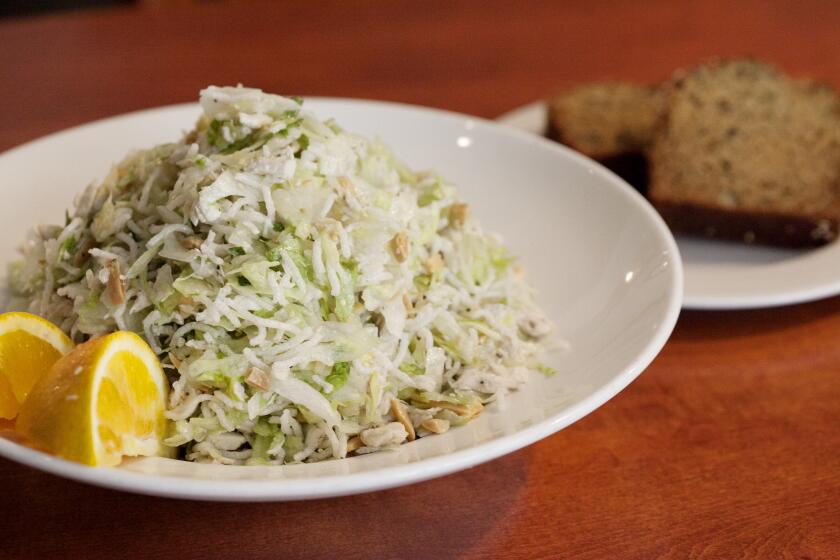Why does bacon smell so good? It’s all in the chemistry

The smell of bacon cooking is so popular there is now a perfume made to mimic it. But did you ever wonder why, if bacon smells so good, nobody ever makes pork-scented perfume? Me neither, actually, but one team of researchers did.
The result is “A Study of the Aroma of Fried Bacon and Fried Pork Loin,” published in 2004 by María L. Timón, Ana I. Carrapiso, Ángela Jurado and Jürgen van de Lagemaat in the Journal of the Science of Food and Agriculture, and recently resurfaced by the chemistry website Compound Interest.
The team analyzed the volatile chemicals that resulted from cooking bacon and pork loin and compared them. The biggest difference was in nitrogen compounds, which they attribute to the nitrites used in curing bacon.
Of course, there’s more to the perfume than that. There are the chemicals produced by our old friends the Maillard reactions, which are created when naturally occurring sugars and amino acids are heated. These are the familiar “browning” smells that are shared by everything from roast meat to baked bread.
There are also the volatile products of the thermal breakdown of fats in the meat. And, of course, there is the sweet, sweet smell of smoke in many bacons.
But according to Compound Interest, the biggest difference was the nitrogen-related compounds, including, if you must know: “2,5-dimethylpyrazine, 2,3-dimethylpyrazine, 2-ethyl-5-methylpyrazine and 2-ethyl-3,5-dimethylpyrazine.”
Furthermore, Compound Interest reports, “The researchers found that, individually, none of these compounds had the precise smell of bacon -- however, they suspect that, combined, and in combination with other volatile compounds, it is most likely that they are responsible.”
In other words, it sounds like there’s room for further study.
My big question is: How do you get a job like that? Timón and Jurado also teamed up (with Lourdes Martín, María J. Petrón, and Carmen García) to do a study of “Composition of Subcutaneous Fat From Dry-Cured Iberian Hams as Influenced by Pig Feeding.”
Now there’s some research you can really sink your teeth into.
ALSO:
Pine and Crane for Taiwanese in Silver Lake
Learning about tequila and mezcal, with food
Homemade Peeps! Do we need to say more?
More to Read
Eat your way across L.A.
Get our weekly Tasting Notes newsletter for reviews, news and more.
You may occasionally receive promotional content from the Los Angeles Times.











